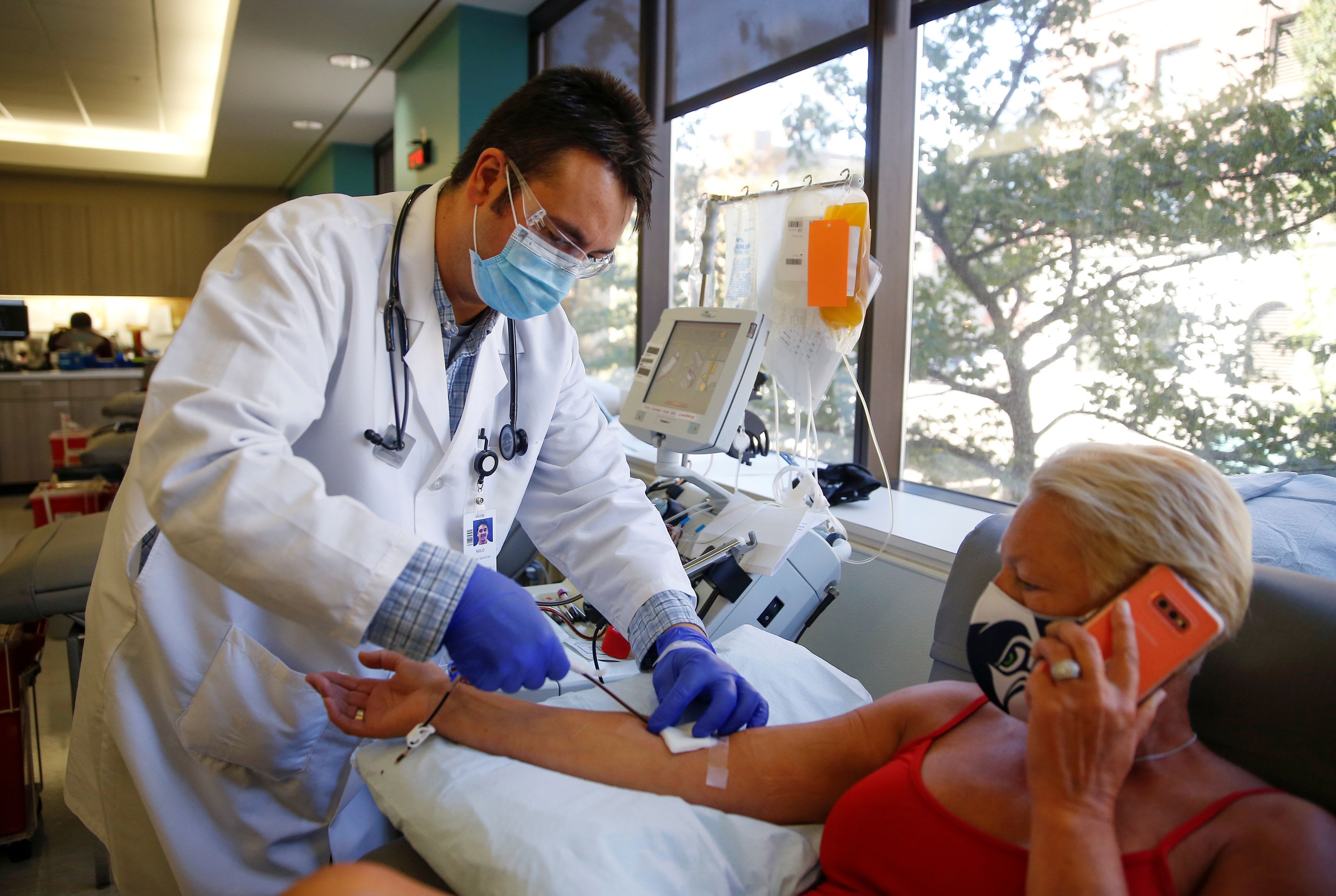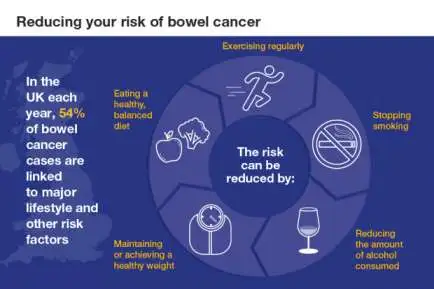
Blood collection specialist Niilo Juntunen removes the IV from recovered coronavirus patient Monica Jacobs as she finishes donating convalescent plasma at the Central Seattle Donor Center of Bloodworks Northwest during the coronavirus disease (COVID-19) global outbreak, in Seattle, Washington, September 2, 2020.
Lindsey Wasson | Reuters
A new study has identified the main factors that make it more likely that patients will suffer long term from the coronavirus.
“Long Covid” is the term given to people who had a confirmed (or suspected) coronavirus case and who recover from the initial infection but continue to suffer from a wide range of symptoms, from shortness of breath and migraines to chronic fatigue.
A new analysis by researchers at King’s College London, using data from the COVID Symptom Study app, shows “that one in 20 people with Covid-19 are likely to suffer symptoms for 8 weeks or more.”
The study, published on Wednesday, looked at data from 4,182 users of the COVID Symptom Study app who had tested positive for the virus, and had been consistently logging their health.
The team found that older or overweight people, women, those with asthma and those with a greater number of different symptoms in the first week of their illness were more likely to develop “long Covid.”
Risk factors
Delving into the risk factors more closely, the study by King’s researchers found that long Covid affects around 10% of 18-49 year olds who become unwell with Covid-19, with the percentage of people affected rising to 22% for the over-70s.
Weight also plays a role, with it affecting people with a slightly higher average BMI (body mass index).
Women were much more likely to suffer from long Covid than men (14.5% compared with 9.5%), but only in the younger age group.
The researchers also found that people reporting a wide range of initial symptoms were more likely to develop long Covid, as were people with asthma, although there were no clear links to any other underlying health conditions.
As for the commonly reported symptoms of long Covid, the research identified two main symptom groupings; One was dominated by respiratory symptoms such as a cough and shortness of breath, fatigue and headaches.
The second grouping “was clearly multi-system, affecting many parts of the body, including the brain, gut and heart,” King’s noted.
Predictive model
The researchers have now used these findings, which are due to be published as a pre-print on Medrxiv (distributes unpublished eprints about health sciences) and have not yet been peer-reviewed, to develop a model that can predict who is most at risk of long Covid by looking at an individual’s age, gender, and count of early symptoms.
The lead researchers, Dr. Claire Steves and Professor Tim Spector, said the research could be used to help target early interventions and research aimed at preventing and treating long Covid.
“It’s important we use the knowledge we have gained from the first wave in the pandemic to reduce the long-term impact of the second,” Steves, a clinical academic and senior author of the study, noted.
“This research could already pave the way for preventative and treatment strategies for long Covid. We urge everyone to join the effort by downloading the app and taking just a minute every day to log your health.”
Long Covid is by no means a universal experience and in fact many people who have contracted the new coronavirus have had a mild illness or been asymptomatic.
King’s researchers found that while most people with Covid-19 reported being back to normal in 11 days or less, around one in seven (13.3%, 558 users) had Covid-19 symptoms lasting for at least four weeks, with around one in 20 (4.5%, 189 users) staying ill for eight weeks and one in 50 (2.3%, 95 users) suffering for longer than 12 weeks.
“These are conservative estimates, which, because of the strict definitions used, may underestimate the extent of Long-Covid,” King’s cautioned.
The U.K.’s National Health Service announced earlier in October that it would be providing specialist help at clinics to those suffering from long-term symptoms of the coronavirus.
Related Post
 08
08 Jul
What Is Self-Management of Chronic Disease?
Diabetes, joint inflammation, hypertension, lung illness, corpulence and other persistent sicknesses can make life challenging to oversee for a great many more seasoned grown-ups, frequently compelling them to surrender their freedom. The Challenges of Chronic Disease More established grown-ups are lopsidedly impacted.
Read More 01
01 Jul
7 Lifestyle Tips to Reduce Your Cancer Risk
How in all actuality do individuals bring down the possibilities getting malignant growth? There's a lot of exhortation. Yet, on occasion, guidance from one review conflicts with the exhortation from another. Disease avoidance data keeps on creating. In any case,.
Read More 27
27 Jun
Effective Allergy Treatments for Kids: A Comprehensive Guide
Is your youngster experiencing a runny nose, sniffling, and bothersome eyes? Assist them with feeling improved with these regular sensitivity cures you can attempt at home. Does your kid have a runny nose, sniffling, and irritated eyes? They may be managing.
Read More 20
20 Jun
Journal Prompts for Mental Health: 7 Ideas to Explore
Journaling has a heap of psychological well-being benefits, however you don't necessarily have any idea what to expound on to get the worth out of a journaling meeting. That is where journaling prompts for treatment come in. More profound diary prompts.
Read More